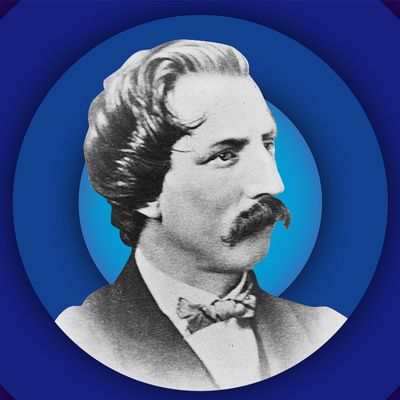
Stand-up existed before the term “stand-up” did. As early as the 19th century, people performed stand-up-comedy-like routines, but they were parts of other types of shows, and no one thought it was its own thing — until they did. That, plus comedy’s ability to adapt to new venues, cultural moments, and technology, makes the history of stand-up so fascinating.
Wayne Federman — a stand-up, actor, USC professor, and contributor to “The 100 Jokes that Shaped Modern Comedy” — has taken on the task of laying it all out in his new book, appropriately titled The History of Stand-up. The book begins by discussing Artemus Ward, a stand-up pioneer who truly had no idea he was such a thing, and chronicles stand-up’s evolution through vaudeville, nightclubs, Village coffee houses, comedy clubs, alternative venues, and all the way up to today and pandemic Zoom shows.
On Vulture’s Good One podcast, Federman talks about The History of Stand-up, the most important venues for comedy over the years, and the comics who defined their eras. You can read an excerpt from the transcript or listen to the full episode below. Tune in to Good One every Thursday on Apple Podcasts, Spotify, Stitcher, Overcast, or wherever you get your podcasts.
Good One
Subscribe on:
Around the late mid-1800s, there was one of the more peculiar forms of early stand-up — lectures. Lectures became all the rage.
It was called the lyceum movement. It was like TED Talks. And there was a guy named Artemus Ward, who was already famous from writing funny things in newspapers. His real name, believe it or not, was Charles Brown. Charlie Brown. And Charlie Brown works for the Cleveland Plain Dealer and has to cover the entertainment scene, which means he’s going to see the minstrel show. Guess what happens in the middle of the minstrel show? The emcee or one of the guys starts quoting his bits that he wrote. He’s like, Oh, that’s crazy. He’s stealing it. But what’s weird, too, is it’s working. My stuff can work onstage.
So Artemus re-created himself and decided to make fun of these lectures. That’s how that started. There’s more to the story, but that’s basically it. But why he’s key to the whole thing is that for two weeks in the late ’60s, Samuel Clemens, who was a reporter in Nevada, sees Ward on one of these tours. Ward is making so much money it inspires Clemens to later do this incredible worldwide tour, when he became famous as Mark Twain.
Which is why Twain gets the prize named after him.
Yes, exactly. There’s no Artemus Ward Prize given to Tina Fey.
More From This Series
- Nate Bargatze Fought Hard for the ‘Washington’s Dream’ Sketch
- Katt Williams Tells the Stories Behind Three of His Best Jokes
- Ego Nwodim Is in Her Silly Season


